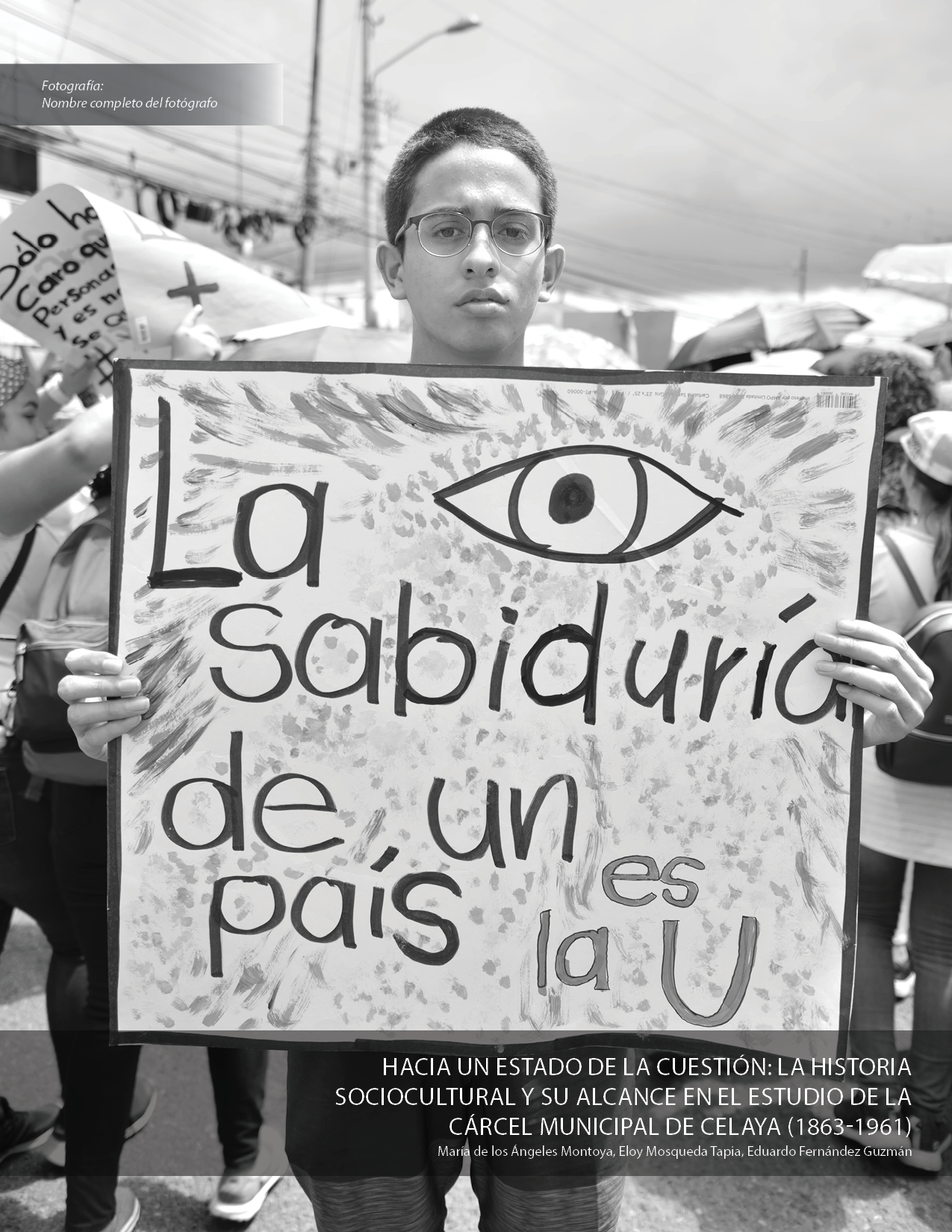Towards a state of the question: the sociocultural history and its scope in the study of the municipal prison of Celaya (1863-1961)
Main Article Content
Abstract
The historical study of research institutions has been relevant in recent years. Sociocultural history, as part of the new history, proposes the analysis of new objects of study, including prison, crime and punitive justice. The prison world, the one wrapped in social representations and imaginaries, the current history and the contribution of sociocultural history becomes essential for its understanding. In America Latina, historiographical tendencies are directed to the study of justice and associated social practices. From this turn in the field of history is proposed the study of local prisons and the explanation of their development and permanence, as well as the categories of crime and punitive forms respond to a sociocultural context. The prison of Celaya (1863-1961) and its historical value in the formation of complex social processes are studied. The study of the municipal jail leads us to the understanding of its representation in the social imaginary. The diversity of sources used for its analysis promotes the construction of an unwritten history. The categories of crime and the forms of punitive justice explain the social practices, values and morality of society, as well as the opening to a new approach to national history based on local history.
Article Details

This work is licensed under a Creative Commons Attribution-NonCommercial-NoDerivs 3.0 Unported License.

